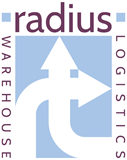What is the HMRC Delayed Declaration Scheme?
Following Britain’s exit from the EU and as part of their logistic strategy, the UK Government introduced the Delay Declaration Scheme. Its purpose was to give businesses an interim period to soften the impact of Brexit and allow them to delay declarations for goods for up to 175 days (or 6 months). Businesses that chose to take advantage of the scheme in January 2021 needed to submit their declarations by June 25th or 175 days from their original import date. In June, the government extended this scheme to allow for delayed declarations up until 31/12/21 on a rolling basis. In this guide, we’ll go over the requirements to qualify for delayed declaration and whether you need to be continuously cautious of utilising this scheme.
Who Can Benefit from the Delayed Declaration Scheme?
The scheme was brought in in 2021 as a means to support businesses involved in international freight movement. It was implemented to provide them with further time to make the necessary changes and reduce the risk of disruption. The goal was to recognise the challenges that many businesses were due to face, largely because of the changes to customs requirements and in line with the pandemic and its impacts too.
The scheme doesn’t restrict businesses from submitting declarations in normal time frames. Instead, it offers the opportunity to submit a supplementary declaration through a representative that is authorised for simplified procedures by the end of their 175 day period. If you choose the delay declarations, you will still need to account for import VAT on these goods in the relevant VAT returns. For businesses struggling to get their heads around the new import schemes or those focused on the impacts of the pandemic with very little on hand, support is likely to see the biggest benefits from this scheme.
What Are the Current Rules?
Currently, you can delay declarations on goods that are imported into the UK free-circulation from EU free-circulation between 01/01/2021 and 31/12/2021. These goods cannot be controlled (a list of controlled goods in the UK can be found on the GOV.uk website here) and the HMRC must not have told you not to, due to poor compliance history. For businesses that are not established in the UK, they must find somebody independent to act on their behalf when dealing with customs.
Delaying Declarations
With the support of a professional freight forwarder or customs broker, the process of delaying declarations is straightforward.
You will need to:
- Obtain an EORI number (Economic Operators Registration and Identification). This process can take up to 5 working days and should be done before completing any work for your goods. To do so, you’ll need your:
- UTR number
- Business start date
- SIC code
- Government Gateway user ID and password
- VAT number
- Date of registration (if VAT registered)
- NI number (for sole traders or individuals)
- Find authorised personnel who can organise customs for you. This could be a customs agent, a broker or a professional and reliable freight forwarding company, such as our team here at Radius Warehouse & Logistic Services.
- Apply for a duty deferment account. This will allow you to delay payment for customs or tax charges when importing goods into the UK. You will need:
- An EORI number (see above)
- The name associated with your EORI number
- Registered company number/Companies House number
- UK address linked to EORI number
- Your address
- VAT number
- Company directors details
- Details for the customs authorisations person
- Estimated debt
- Either get or find someone who has authorisation for Customs Freight Simplified Procedures (CFSP). If you are applying for this authorisation yourself, you will need a minimum of 60 days before you need to make the first supplementary declaration. You can apply by completing the C&E 48 form and posting it to the HMRC. There are two simplified declaration schemes suitable:
- EIDR – used for standard goods.
- SDP – allows you to submit a Simplified Frontier Declaration before each individual import.
- Gain access to software that is compatible with the CHIEF system (Customs Handling of Import and Export Freight). You will also need to ensure employees who need to access this software are fully trained and confident to prevent problems.
- For VAT registered companies, estimate the import VAT that needs to be recorded on the VAT Return.
Other Extended Post-Brexit Import Customs to Be Aware Of
Alongside the delayed declarations scheme, there are several additional extensions set out to support businesses during this transition period.
These include:
- Safety and Security Declarations (used to analyse the risk to territories due to the imported goods) have been delayed until 01/01/22
- No physical checks of SPS (sanitary and phytosanitary) products until 2022
- No checks of low-risk live animal and plant products until 01/03/22
- No pre-notifications on animal-based products until 01/10/21
How Can Radius Warehouse & Logistic Services Help?
With over 25 years of experience in international trade and logistic solutions for worldwide cargo movements, our specialist team is here to support your business through these changes. With efficient professionals on hand and a specialism in both inbound and outbound movements, we can support you in ensuring you tick every box and benefit from all relevant schemes. The Delayed Declaration Scheme requires a high degree of organisation and experience to ensure you aren’t left with a high influx of fines and financial implications after the end date. If you have any further questions about this scheme or any other processes linked to the post-Brexit trade, please do get in contact with us here today.



